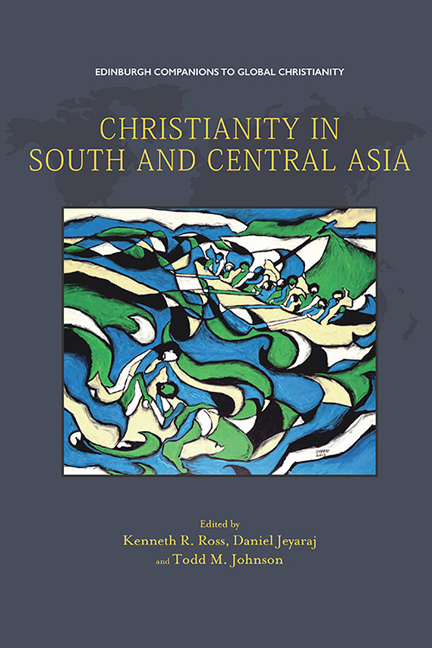Bangladesh
Published online by Cambridge University Press: 30 April 2020
Summary
Religion plays an important role in the lives of the people in Bangladesh. The country has a majority Muslim population, at 91%, mostly Sunni. The Hindus at 8.1% are the largest religious minority. Buddhists make up another 0.7%. Christians of diverse denominations constitute less than 1% of the population. Small communities of animists, Baha’is, Sikhs and Jains are also present in Bangladesh. There are some 35 indigenous or tribal groups in the country, each having its own distinct language. Forty-two languages are in use in Bangladesh; Bengali is the official and widespread language.
Bangladesh was founded as a secular democratic state in 1971. However, in 1975 secularism was removed from the constitution. In 1988, with a military government in power, Islam was acknowledged as the state religion. In 1974 the country became a member of the Organisation of Islamic Cooperation. This strengthening Islamic identity has resulted in increasing apprehension among minority groups. At the same time, Bangladesh has witnessed the rise of a strident marginal group of Islamic fundamentalists. The government tries to please both people with a strong Islamic identity and those with staunch secular thinking. This double standard of the government has created tensions concerning the presence of Christian missionaries. Even though the government had constitutionally permitted the Christian churches to have the benefit of freedom of worship, at times it tends to be suspicious of their religious activities.
Historical Background
Portuguese traders brought Christianity to Bangladesh through the port of Chittagong in the sixteenth century. In 1577, Emperor Akbar permitted the Portuguese to build churches in Bengal. The Jesuit Father Francisco Fernandez went to Chandecan, now Satkhira, in October 1599. With the permission of King Pratapadittya he built the Church of the Holy Name of Jesus, which was officially inaugurated on 1 January 1600. The second church, St John the Baptist, was built in Chittagong and inaugurated on 24 June 1600 by the Jesuit Fathers Francisco Fernandez and Andre Boves. During a conflict between the Kingdom of Arakanese and the Bengal Sultanate the chapel was burnt down and missionaries were manhandled.
- Type
- Chapter
- Information
- Christianity in South and Central Asia , pp. 184 - 196Publisher: Edinburgh University PressPrint publication year: 2019

